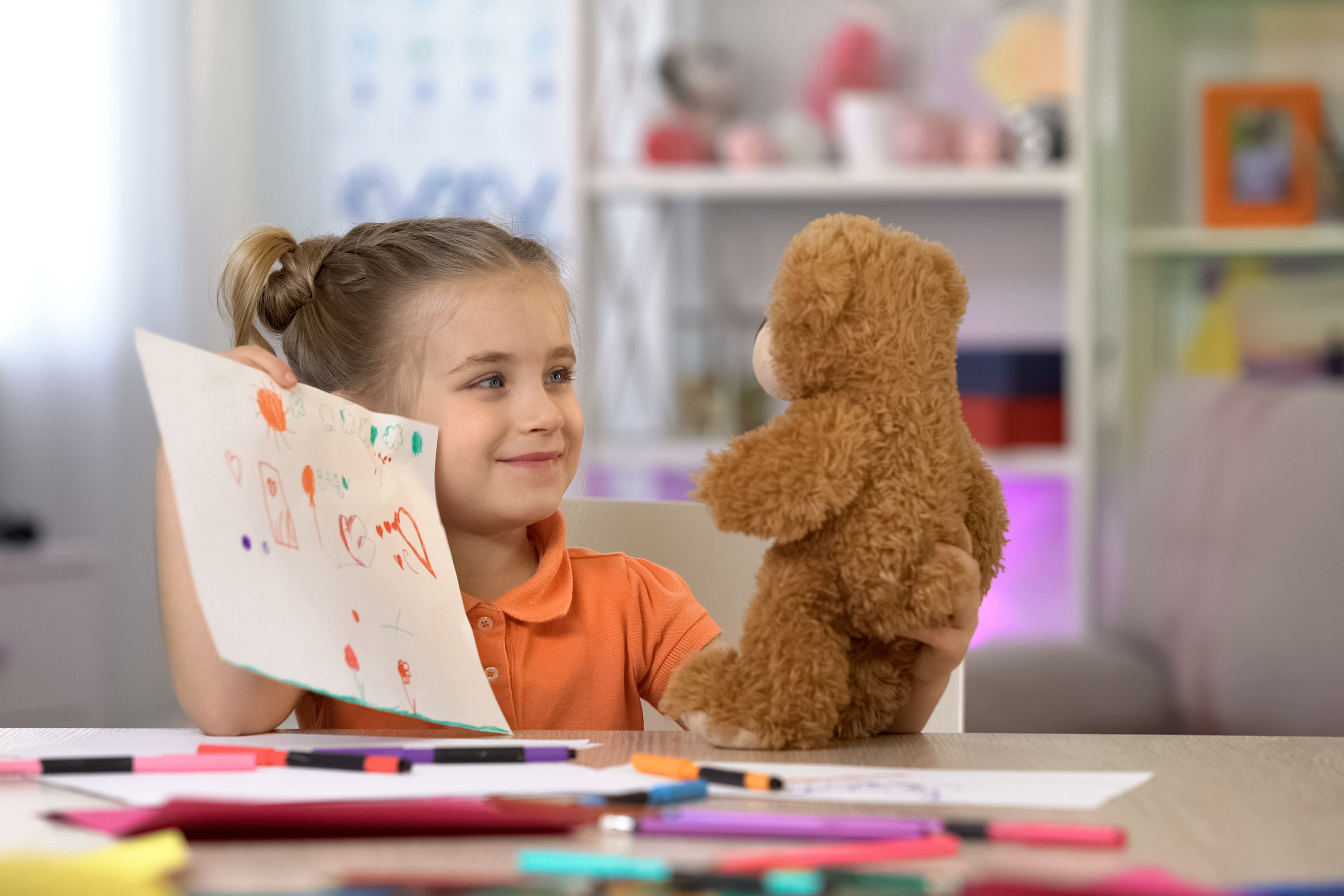In adults, seeing, hearing, and talking to a person that isn't really there might be a sign of mental illness. However, such things are completely common in young children. These are known as imaginary friends. According to WebMD, 65% of children have imaginary friends prior to turning seven years old.
These "friends" are a product of children's imaginations. They might be other children, mythical creatures, animals, a toy that has come to life, or any other kind of imaginary companion. Usually, you don't need to worry about a child if they have a made-up friend.
What Makes Children Have Imaginary Friends?
If a child suddenly starts talking to someone who isn't there, parents might be a little thrown off. They are playing with an invisible playmate; it's normal to wonder what that means. According to Dr. Ashley M. Whitaker, board certified pediatric neuropsychologist, these pretend friends can be completely invisible or personified in a toy or other item where a child attributes human characteristics to an inanimate object.
Imaginary companions are most common among preschool-aged children, but can continue into early adolescence as well. Imaginary friends usually serve a purpose such as:
- Provide companionship
- Give the child a chance to try different ways of doing things
- Allow the child to play in a more creative way
- Offer a safe place to practice people skills
- Permit children to test out strong emotions like anger and fear, in safety and in private
- Let the child be the one in charge, the boss, when the child may be feeling powerless or vulnerable in real life
- Empower the child to experience a rich internal private life that is safe from others' eyes
- Grant comfort when a child is stressed out by being there with unconditional (if imagined) love and acceptance
Is It Healthy To Have An Imaginary Friend?
According to The American Journal of Play, having an imaginary friend is a normal and healthy part of childhood play. Having one has even shown benefits in childhood development. If a parent notices that their child is experiencing something more, they may want to set up an appointment to see their primary doctor. For example, if the child's imaginary friend ever becomes scary, aggressive, or frightening to your child, an evaluation with a mental health professional can give you peace of mind.
Again, most times imaginary friends are nothing to worry about. As parents, though, it's hard not to worry when something changes dramatically with your child. Parents can reach out for support from their child's doctor or a mental health professional at any point they see fit.
Parents Can Learn From Imaginary Friends
Parents can spot possible issues with their children through them having an imaginary friend. For instance, if an imaginary friend is afraid of something, maybe the dark, or spiders, the child might use the imaginary friend to project that. They might be able to work through it with their friend, or a parent can help too. Sometimes an imaginary friend is used as a child's scapegoat. A child might use them to get out of trouble if they break something. They may use them to override what their parents said, like they don't have to go to bed when mom says. These are all opportunities for a parent to reassure their child.
If a child breaks something and blames it on their imaginary friend, mom can swoop in and reassure them that, "mistakes happen, and it will be ok." This way the child knows that sometimes bad things happen, and it doesn't mean they aren't worthy of being loved. When a child says they don't need to go to bed, parents might say they understand that, but reinforce that they are the parent, and they make the rules. Children know this friend is not real, but it's easier to push boundaries when it's not exactly "them" doing it.
Thinking of imaginary friends like a child's cushion might help. They take in so much, and sometimes they are just not sure. Using this friend to do things for them, lets them know what is right and wrong. Almost like a coping mechanism. That's a good thing.
How Do Parents Interact With Their Child's Imaginary Friend?
Clinical psychologist Dr. Eshleman, acknowledges it might feel awkward when a child discusses their imaginary friend, but it's good for parents to play along. Ask what their name is, or about the things they do together; just treat them like any other friend.
Parents can be at ease with their child having an imaginary friend. It can be a benefit in more ways than one. Watching a child, and listening to how they interact with their imaginary friend, really is an interesting thing to witness. Take it as a good thing.
Sources: WebMD, Ashley M. Whitaker, American Journal of Play, Dr. Eshleman

.png)
.png)
.png)
.png)